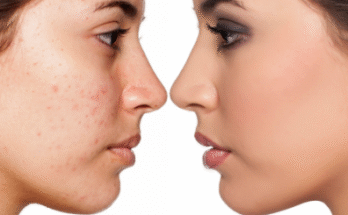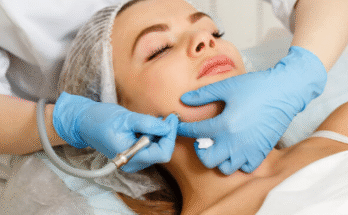Acne is one of the most common skin concerns in the world. For many people, it’s more than just an occasional blemish—it can be an ongoing challenge that affects self-confidence and comfort. While acne has many causes, from hormones to lifestyle habits, a lot of people unknowingly make mistakes that make the problem worse. Understanding these common missteps can make a big difference in improving the skin’s condition and preventing future breakouts.
One of the biggest mistakes acne sufferers make is believing that harsh products will fix their skin. When pimples appear, it’s tempting to reach for the strongest cleanser or scrub available, thinking that a deep clean will make the acne disappear. In reality, over-cleansing can strip away the skin’s natural oils, which are necessary for balance and protection. When the skin becomes too dry, it compensates by producing even more oil, leading to additional breakouts. Gentle cleansing twice a day is usually enough to remove excess oil and dirt without damaging the skin barrier.
Another common error is skipping moisturizer out of fear that it will make acne worse. Many people think that moisturizing will clog pores or make their skin feel greasy. However, even oily and acne-prone skin needs hydration. The right kind of moisturizer—lightweight, oil-free, and non-comedogenic—can help maintain a healthy barrier and keep the skin calm. When skin is dehydrated, it can become irritated, red, and more prone to pimples. Moisturizing actually helps control excess oil production in the long run.
Popping pimples is another habit that often backfires. It might seem satisfying to get rid of a blemish quickly, but squeezing can push bacteria and inflammation deeper into the skin. This can cause more swelling, infection, and sometimes even scarring. In many cases, what could have been a small pimple becomes a larger and more painful spot. The best approach is to let breakouts heal naturally or to use a topical treatment that reduces inflammation and bacteria. If acne is severe or persistent, seeing a dermatologist for professional care is a smarter and safer option.
A mistake that many people make is not being consistent with their skincare routine. Acne treatments, whether over-the-counter or prescription, usually take time to work. It’s normal for results to take several weeks, and sometimes the skin can even get slightly worse before it gets better. Switching between products too often can prevent them from being effective. Patience and consistency are key. Using a gentle, steady routine allows the skin to adjust and heal at its own pace.
Some acne sufferers also make the mistake of using too many products at once. It’s easy to fall into the trap of layering multiple creams, serums, and spot treatments, hoping that more will work faster. Unfortunately, combining too many active ingredients can irritate the skin and lead to redness, dryness, and peeling. Ingredients like salicylic acid, benzoyl peroxide, and retinoids are powerful but can be harsh when overused. A simpler approach, with only a few well-chosen products, is usually more effective and easier for the skin to tolerate.
Diet is another area where people sometimes go wrong. While acne isn’t caused by eating a single type of food, certain eating habits can influence skin health. Some people notice that foods high in sugar or dairy can trigger breakouts. Ignoring these personal triggers can keep acne from improving. Paying attention to how the skin reacts to different foods can help identify patterns. A balanced diet that includes plenty of fruits, vegetables, and water supports overall health and can reflect positively on the skin.
Touching the face throughout the day is a surprisingly common mistake. Our hands come into contact with many surfaces, and when we rest them on our face, we can transfer dirt and bacteria directly onto the skin. This habit can lead to clogged pores and new breakouts. Being mindful of this behavior and keeping hands clean can help reduce the risk of irritation. Similarly, not cleaning items that touch the face, such as phones, pillowcases, and makeup brushes, can also contribute to acne. Regular cleaning of these items makes a noticeable difference.
Another overlooked mistake is sleeping with makeup on. After a long day, it can be tempting to skip cleansing and go straight to bed. However, leaving makeup and dirt on the skin overnight blocks pores and prevents the skin from renewing itself properly. This can lead to dullness, blackheads, and new pimples by morning. Taking a few minutes to cleanse before bed is one of the most effective habits for maintaining clear skin.
Many acne sufferers also ignore sun protection, thinking that sun exposure helps dry out pimples. While the sun can temporarily reduce redness, over time it can actually make acne worse. Sun damage leads to dryness, irritation, and premature aging. Some acne medications also make the skin more sensitive to sunlight. Wearing sunscreen daily, even on cloudy days, is essential. Choosing a formula designed for acne-prone skin ensures that it won’t clog pores or feel heavy.
Stress is another factor often underestimated. High stress levels can trigger hormonal changes that worsen acne. Many people focus only on topical treatments without addressing the emotional side of skincare. Practicing relaxation techniques, getting enough sleep, and taking time for enjoyable activities can reduce stress and help balance the skin’s condition. A calm mind often leads to calmer skin.
Finally, one of the most significant mistakes is not seeking help when acne becomes too difficult to manage alone. There’s no shame in consulting a dermatologist or skincare professional. Persistent or painful acne may require prescription treatments or specialized guidance. Professional care can help find the right combination of products and medications tailored to each person’s needs. Trying to treat severe acne without guidance can prolong the problem and lead to unnecessary frustration.
Clear skin doesn’t happen overnight, and it rarely comes from aggressive measures. The key is understanding what helps and what harms. Avoiding harsh cleansers, staying consistent with products, keeping the skin hydrated, and being gentle with it are the foundations of healthy skincare. Acne can improve greatly when small daily habits are adjusted with patience and care.
Each person’s skin is unique, and what works for one person might not work for another. The journey to clearer skin often involves learning, experimenting, and adjusting. By recognizing and avoiding these common mistakes, acne sufferers can take real steps toward healthier, more balanced skin. With time, consistency, and the right approach, it’s possible to achieve clearer, calmer skin and renewed confidence.

